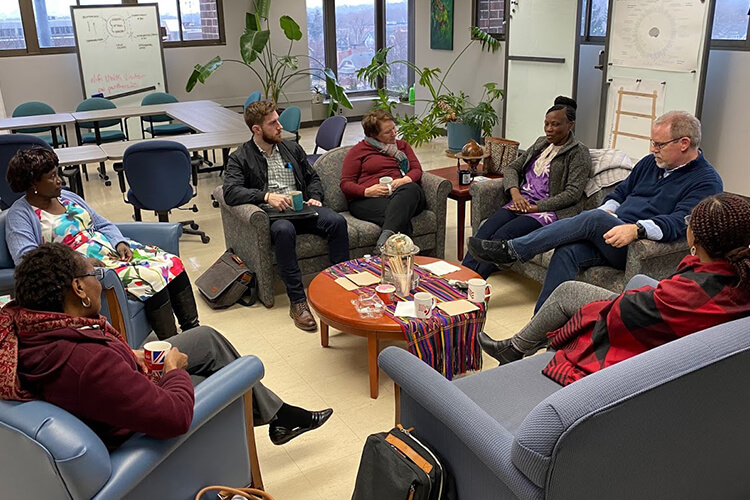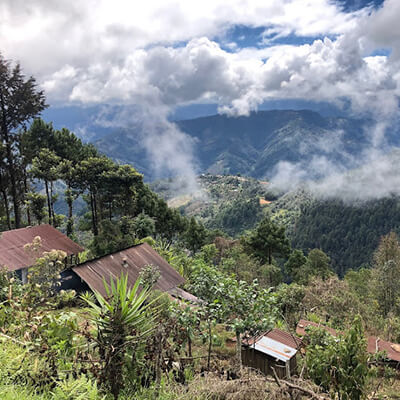Community Partners
The institute works to align interests for collective action on co-created programs and projects through our Systems Change and Peacebuilding Fellows program and by utilizing participatory processes and dialogue to create shared understandings and proposals.

Institute Partners
Our partners represent organizations and agencies spanning the diverse sectors of practice, issues and engagement relevant to Milwaukee and globally.
 From local impact
From local impact  To Global
To Global Our Partners include:
- Alma Center
- Catholic Charities
- Housing Authority of the City of Milwaukee-Choice Neighborhood Initiative
- International Peace Initiatives
- KIVA & the Wisconsin Women’s Business Initiative Corporation
- Marquette University Center for Urban Research, Teaching, and Outreach Education Preparedness Program
- Milwaukee Muslim Women’s Coalition
- Nia Imani
- Riverwest Food Pantry
- UW-Milwaukee Institute for World Affairs
- Walnut Way Conversation Corps
- Wisconsin Decarceration Platform
Interested in becoming a community partner? Fill out the community partner interest form.
Systems Change and Peacebuilding Fellows
The Systems Change & Peacebuilding Fellows program provides opportunities for students to work side by side with community partners while building critical leadership skills in community-building, systems-thinking, facilitation, strategic planning and evaluation. Fellows provide support for ongoing partner initiatives, while also bringing their systems and peacebuilding perspectives, and practicing the institute’s core values of relationships, equity, emergence and trust.
